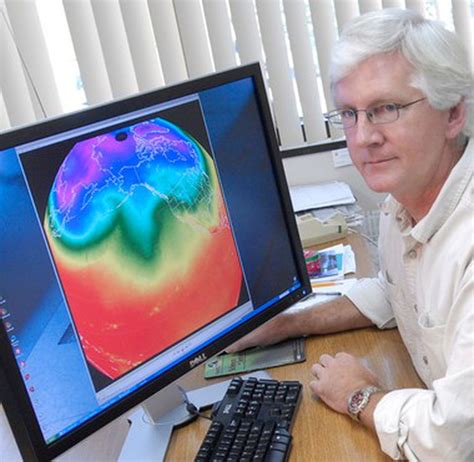A Quote by David Papineau
The relevant features of scientific practice often have mundane explanations which don't point to any deep metaphysical moral. (Thus it would simply be messy and pointless for the chemists to essay physical reductions, or for the biologists to offer number-free explanations. It's a weird kind of science-worship that views these practical considerations as clues to the nature of reality.)
Related Quotes
A certain kind of methodologically-minded philosopher of science is quick to read off metaphysical conclusions from features of scientific practice. Chemists don't derive their laws from fundamental physics, so reductive physicalism must be false. Biologists refer to natural numbers in some of their explanations, so numbers must exist. I think that this kind of thing makes for bad philosophy.
In evolution, as in all areas of science, our knowledge is incomplete. But the entire success of the scientific enterprise has depended on an insistence that these gaps be filled by natural explanations, logically derived from confirmable evidence. Because "intelligent design" theories are based on supernatural explanations, they can have nothing to do with science.
It would appear... that moral phenomena, when observed on a great scale, are found to resemble physical phenomena; and we thus arrive, in inquiries of this kind, at the fundamental principle, that the greater the number of individuals observed, the more do individual peculiarities, whether physical or moral, become effaced, and leave in a prominent point of view the general facts, by virtue of which society exists and is preserved.
I do think that metaphysical exploration is like scientific exploration, in the sense that philosophers and scientists are both developing models of reality, and furthermore that we all rely to a significant extent on the idea that models which provide elegant, simple and satisfying explanations are more likely to be true.
The scientific method is the ultimate elegant explanation. It is the ultimate foundation for anything worthy of the name "explanation". It makes no sense to talk about explanations without having a process for deciding which are right and which are wrong, and in a broad sense that is what the scientific method is about. All of the other wonderful explanations celebrated here owe their origin and credibility to the process by which they are verified-the scientific method.
The thing I think I have learned from Wittgenstein is the importance of not making things up: philosophers should not invent problems, and they should also be conscious of the risk of inventing pointless 'technical' machinery which do not offer real explanations, but often just re-state the known facts in a more complex way.
All scientists should be skeptics. The reason why is that, even with the best of scientific measurements, we can come up with all kinds of explanations of what those measurements mean in terms of cause and effect, and yet most of those explanations are wrong. It's really easy to be wrong in science ... it's really hard to be right.
As time passed I became an avid reader of popular scientific books, wanting to know as much as I could about the world in which I lived. Gradually I began to see a pattern of nonsense in much scientific writing. Scientific explanations given regarding the origins or functioning of various phenomena simply didn't make sense.
In the abstract, it might be tempting to imagine that irreducible complexity simply requires multiple simultaneous mutations - that evolution might be far chancier than we thought, but still possible. Such an appeal to brute luck can never be refuted... Luck is metaphysical speculation; scientific explanations invoke causes.
We all want explanations for why we behave as we do and for the ways the world around us functions. Even when our feeble explanations have little to do with reality. We’re storytelling creatures by nature, and we tell ourselves story after story until we come up with an explanation that we like and that sounds reasonable enough to believe. And when the story portrays us in a more glowing and positive light, so much the better.








































